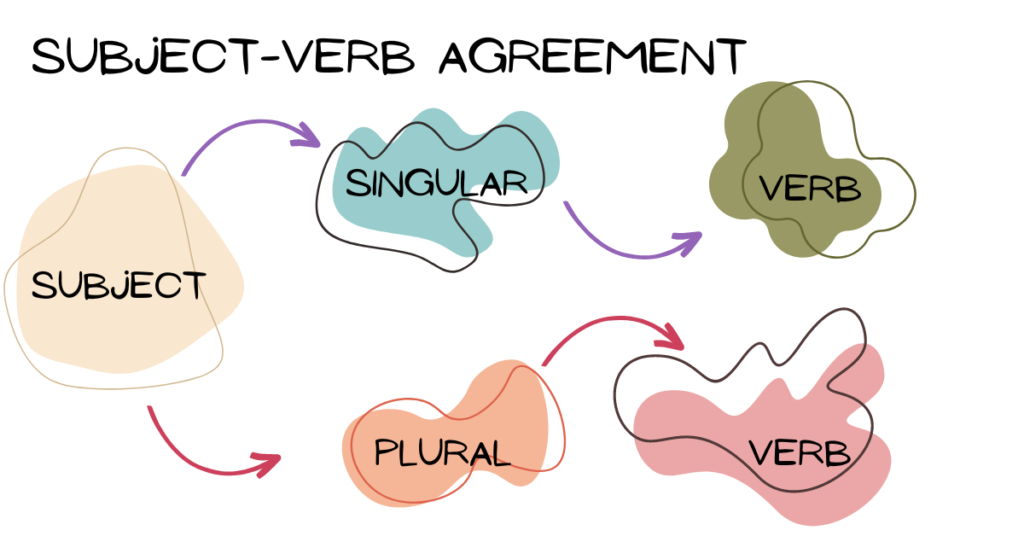
Subject-verb agreement is a grammatical rule that ensures that the subject and the verb in a sentence agree in number (singular or plural). This means that a singular subject takes a singular verb, while a plural subject takes a plural verb. Subject-verb agreement helps to maintain grammatical accuracy and clarity in a sentence.
Example: “She dances every day.”
Explanation: In this sentence, the singular subject “she” agrees with the singular verb “dances.” The verb “dances” is conjugated to match the third-person singular subject “she.”
- Singular Subject with Singular Verb:
Examples:
- The cat jumps over the fence.
- The boy runs in the park.
- My friend plays the guitar.
- The book is on the table.
- Come up with your own sentence.
- Plural Subject with Plural Verb:
Examples:
- The birds fly in the sky.
- They eat dinner together.
- The students study for exams.
- The dogs bark loudly.
- Come up with your own sentence.
- Special Cases:
- Indefinite Pronouns: Some indefinite pronouns, like “everyone” and “each,” are singular and require a singular verb.
- Everyone enjoys a good movie.
- Everyone is invited to the party.
- Each student has their own book.
- Come up with your own sentence.
- Collective Nouns: Collective nouns refer to a group of individuals but are treated as singular and require a singular verb.
- The team is practicing for the match.
- The committee makes decisions together.
- The jury has reached a verdict.
- Come up with your own sentence.
- Agreement with Compound Subjects: When the subject consists of two or more nouns joined by “and,” it is generally plural and requires a plural verb.
- John and Sarah are going to the party.
- Tom and Jane go to the movies.
- The cat and the dog are playing in the yard.
- Come up with your own sentence.
- Agreement with Compound Subjects with “or” or “nor”: When the subject consists of two or more nouns joined by “or” or “nor,” the verb agrees with the noun closest to it.
- Neither the cat nor the dog is allowed on the couch.
- Neither the car nor the bike is mine.
- Either the pen or the pencil is fine.
- Come up with your own sentence.
- Agreement with Indefinite Pronouns: Some indefinite pronouns, such as “all,” “some,” and “many,” can be either singular or plural, depending on the context.
- All of the food is delicious. (singular)
- All of the books are on the shelf. (plural)
- Some of the cake has been eaten. (singular)
- Many of the books are on the shelf. (plural)
- Come up with your own sentence.
Subject-verb agreement is essential to maintain grammatical correctness and ensure that the subject and verb are in harmony. By using the appropriate verb form based on the subject’s number, we can create sentences that are clear and grammatically accurate.